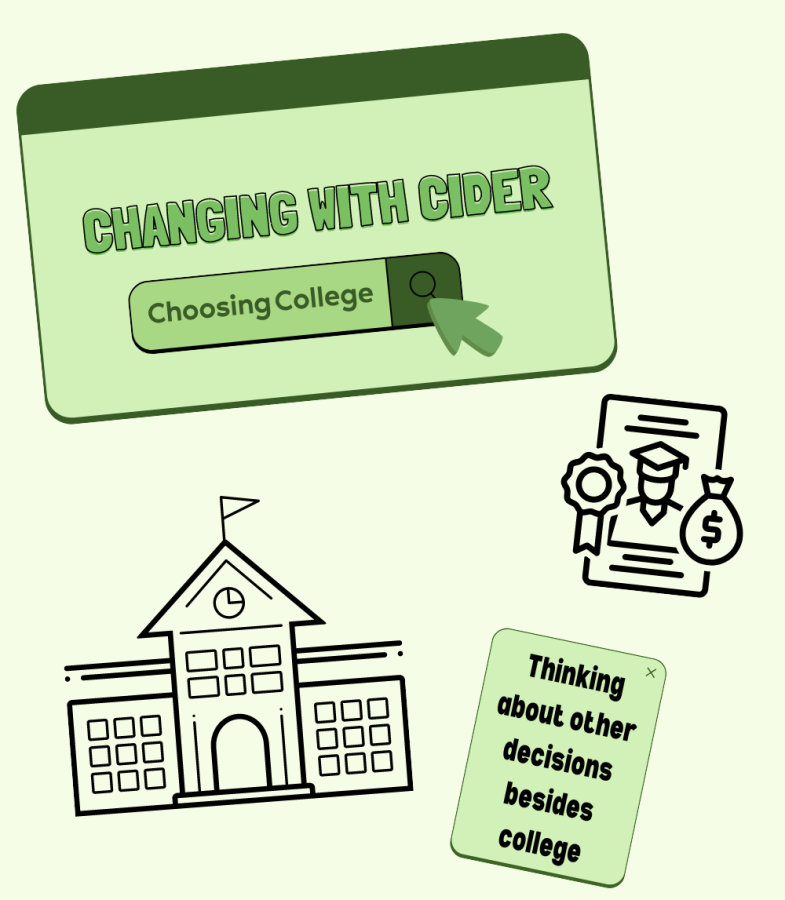Changing with Cider: Choosing college
I always knew I would go to college. It wasn’t an idea my parents pressured onto me, but I always had a feeling my high grades meant something to them. There was an underlying expectation I would be the first in my family to go beyond a basic high school education.
I used to view college as a gateway to a perfect life. I would get a degree, and it would lead me to have no worries ever again. I would be successful and rich all because I had a college degree. My naiveness was ridiculous to say the least.
College wasn’t only a goal because of my thoughts on an easy, successful life. I also wanted to prove myself to everyone in my family. When I was a child, I grew up with rocky, family relationships. I had a lot of spite towards some of my family members, and I thought “being better” would show people how capable I was. I wanted to prove to them I was better than they would ever imagine by attending college.
There was also an egotistical part of me that had pride in the thought that I was the first in my entire family to take that pathway. There was nobody I knew of who had the chance to. My dad’s side of the family was still full of first and second generation immigrants, and my mother’s side had their own issues that made it hard to make college a reality. I felt like I needed to be the one to change the family history. I was smart enough, and nobody else was planning on attending. The idea only added on a layer of expectations and motivation to drive me further.
Of course, I now know how warped my perspective was. It was good to have a goal, but my reasoning for it was flawed. My view on college has changed and matured a lot over the past few years. My mother and older sister both attended college. My mother recently finished her degree, and my sister is close to finishing her own. The two of them going to college took away more stress than I knew. I no longer had this weight on me to meet expectations, and I could relax a little bit.
With some anxiety around the topic disappearing, I thought more about college and if it was truly the path I wanted. I took my future goals into consideration. What did I want to do with the rest of my life? Would I need a college degree to fulfill these plans? The answer was yes. I did need further education, so I stuck with the goal. The only difference was that it was no longer for others, but for myself. It was to make myself better, and to turn myself into the person I wanted to become.
Even if college was right for me in the end, that doesn’t make it a necessity for everyone. Many factors play into going to college which can make it less desirable. College will take up at least two years of a person’s life for an associate’s degree and more for other degrees. Some people can’t devote that amount of time to a path that might not work out for them. Money is also another issue that prohibits people from attending education beyond high school. The money can add up fast, and college debt won’t always be worth it.
People have to look at their future plans when thinking about college as well. Their career choices play a huge part in whether or not they need to earn college degrees. Some jobs require them while others don’t. It’s simply not worth it to pay all the money and invest all the time for something that isn’t even needed in the long run.
For some, other pathways might be more beneficial than college. Trade school can be cheaper and provide a more hands-on experience than college, making it a better alternative for people looking to go into skilled trades. Apprenticeships could also be a more helpful option that gives people direct training







